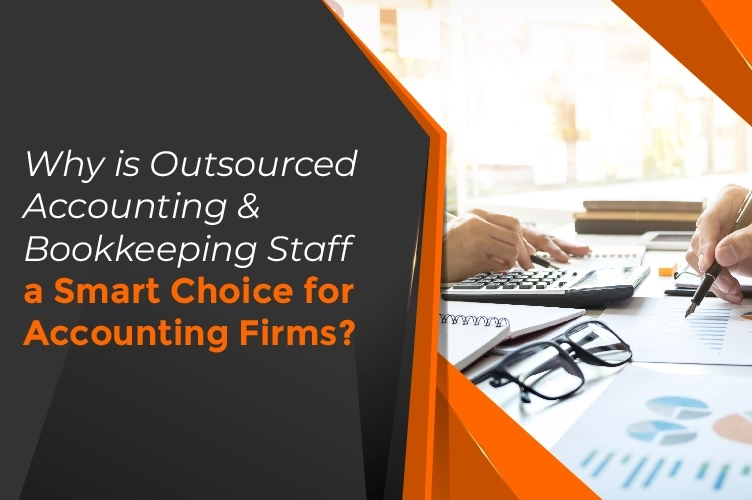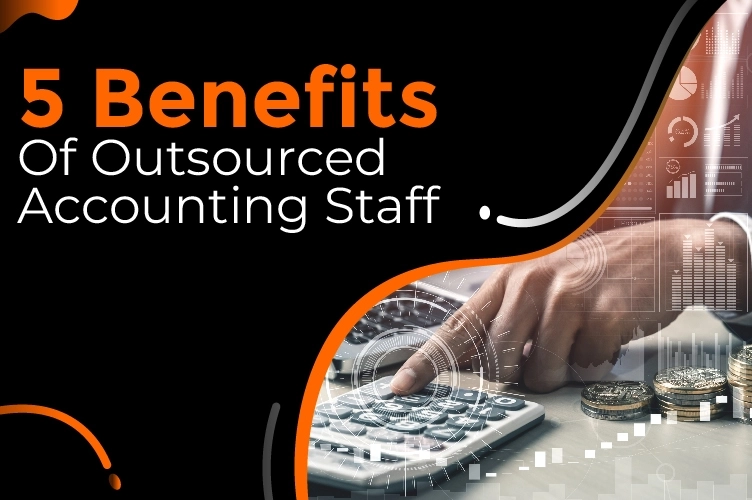9 reasons why accounting firms should avoid working with freelancers or mom-and-pop shops in offshoring
In the IT industry, hiring freelancers or mom-and-pop shops from developing economies is popular due to skilled professionals at competitive rates, flexibility, scalability, and remote work capabilities, leading to cost reduction and access to a global talent pool.
However, when it comes to offshore staffing for accounting firms and other industries, the dynamics are somewhat different. Accounting services require a high level of confidentiality, accuracy, and compliance with regulatory standards. These factors make offshore staffing for accounting firms more complex and challenging compared to the IT industry. In fact, there are several red flags to look out for when offshoring accounting to freelancers.
One of the main concerns with offshore staff hiring in the accounting industry is data security and confidentiality. Accounting firms deal with sensitive financial information, including personal and corporate financial data. Offshoring such data to an external party, particularly in developing economies with different legal frameworks, can raise concerns about data breaches, privacy violations, and intellectual property theft. The risk of exposing client information to unauthorized access is a significant consideration for accounting firms.
Therefore, it is recommended to engage with an offshore accounting partner who offers robust data security measures and adheres to multiple data security standards, including SOC Type II and GDPR compliance.
Additionally, accounting practices and regulations vary across countries and jurisdictions. Offshoring accounting tasks requires a deep understanding of the local legal and regulatory frameworks to ensure compliance. It can be challenging to find offshore staffing service providers who are well-versed in the specific accounting practices and regulations of the client's country.
Language and cultural differences can also pose challenges in offshoring for accounting firms. Effective communication is crucial in the accounting industry, as it involves discussing financial matters and interpreting complex regulations. Language barriers and cultural nuances can hinder effective communication, potentially leading to misunderstandings, errors, and delays.
Furthermore, offshoring accounting tasks may involve complex workflows and close collaboration with clients. This can be more difficult to achieve when working with remote staffing solutions providers, especially across different time zones. Real-time interaction and coordination become essential, and it may require additional effort to establish effective communication channels and ensure seamless collaboration.
Top 9 reasons why offshoring your work to freelancers or mom-and-pop shops might not be the best idea.
1. Lack of a legal agreement
Ideally, with offshoring, you should have a service agreement, a rock-solid NDA, and privacy compliance to lay the foundation of the job. With laws about freelance work differing from country to country, you might end up with nothing more than a paper deemed or ad-hoc contract. The potential for data confidentiality is, thus, extremely uncertain. In the case of any breach or violation, the possibility of legal recourse is quite unlikely.
2. Data violation is a big issue
Typically, most freelance accountants work out of developing countries, with a few exceptions. According to the global payment platform Payoneer’s Global Gig Economy Index, Ukraine, Spain, Brazil, Pakistan, India, the Philippines, and Bangladesh come under the fastest-growing freelancer markets. There have been numerous prior instances of IRS tax fraud, IRS refund fraud, and various credit card/bank transfer frauds originating in these countries. This poses a massive risk to the data confidentiality between you and your clients, potentially ruining your reputation and brand in the market.
3. Absence of accountability
Freelance accountants and small mom-and-pop accounting shops rarely work with a single client at a time, especially for the long term. They usually juggle multiple clients and multiple responsibilities at the same time. This makes missing deadlines and fluctuating quality of work a much more likely possibility. Also, their perspective is that if they lose you as a client, they will gain a new one from the marketplace. In such a situation, it will be an added task for you to ensure the level of commitment and quality of the submitted work.
4. Internet issues & cyberattacks
Massive power outages lasting hours are common even in metropolitan cities, much less in semi-urban and rural areas in developing countries. Freelance accountants and mom-and-pop shops often rely on flimsy mobile data or home broadband to carry out their responsibilities. Faulty communication will thus be a habitual issue you must prepare for when hiring freelancers. This can also be a source of cyberattacks because often, these networks are not firewall-protected or don’t have any security.
5. Risk in reliability
With an excellent accounting, audit, and tax offshore service provider, recruitment is carried out only after the individual passes a stringent background check. With freelance accounting, background checks are challenging and time-consuming to carry out. With their identity and professional capabilities being difficult to determine, a constant risk exists while working with them. Often, there have been instances where freelance accountants, for whatever reason, fell off the radar amid a busy tax season. ‘Ghosting’ is a prevalent risk while dealing with freelancers.
6. Unavailability of senior-level talent
The Accounting freelancing industry has indeed served as a valuable gateway for newcomers and self-supporting professionals to attain financial independence and professional growth. It offers an accessible platform for individuals to showcase their skills, build a portfolio, and gain practical experience. However, when seeking senior-level talent, it is less likely to find them exclusively freelancing. Senior-level accounting professionals often seek stable, long-term positions that provide higher levels of responsibility, leadership opportunities, and benefits. They may prioritize the stability and security that come with traditional employment, such as career progression, comprehensive benefits packages, and a consistent work environment. Therefore, for accounting firms searching for experienced senior-level talent, it is more common to find them in permanent positions within established organizations rather than exclusively freelancing.
7. Unsustainable in the long-term
While freelance accounting may appear cost-effective initially, it is not a sustainable long-term solution for accounting firms. The limitations of freelancing accounting work can have negative implications for a firm's overall success. First, relying heavily on freelancers can lead to inconsistent service quality and a lack of accountability. Second, it can hinder effective communication and collaboration within the firm, as freelancers operate independently and may not be aligned with the firm's goals and values. Third, freelancers may not have the same level of expertise and specialization as in-house professionals, potentially compromising the quality and accuracy of work.
Fourth, maintaining client relationships becomes challenging when clients have direct access to freelancers, increasing the risk of client poaching. Lastly, as freelance accountants operate on their own terms, the firm may face difficulties scaling operations and maintaining a consistent and cohesive team. To ensure long-term success, accounting firms should focus on building a perfect offshore accounting team with all the essential skills that foster a culture of collaboration, and providing reliable and comprehensive services to clients.
8. Individualistic mindset
To ensure our firm's continued growth and success, it is crucial to align ourselves with individuals who share similar objectives at their core. Freelance accountants are often driven by the desire for autonomy and freedom from traditional work structures, allowing them to work on their own terms. Financial independence is another significant motivator for freelancers, as they have the potential to earn a higher income through their diverse client base and the ability to set their own rates. Furthermore, freelancers value the opportunity to work with a diverse range of clients, as it provides them with varied experiences and the chance to expand their skill set.
9. Client poaching
In certain situations, the absence of a formal agreement can create opportunities for cunning freelancers and small businesses to directly approach a firm's clients and attempt to pitch their services. These individuals may exploit the lack of a structured relationship between the firm and its clients to gain a competitive advantage. By bypassing the firm's accounting firms, they may aim to offer their services at lower prices, appealing to clients looking for cost-effective solutions. This approach can undermine the firm's established relationships and erode its client base. To mitigate this risk, it is essential for the firm to establish clear agreements and contracts with clients, outlining the exclusive nature of the relationship and the expectations for confidentiality and professionalism. Additionally, maintaining open lines of communication and providing excellent service can help solidify the firm's position and discourage clients from seeking alternatives.
In conclusion, while offshoring and hiring freelancers or mom-and-pop accounting shops may work in certain industries, it definitely presents significant challenges and risks for accounting firms. The sensitive nature of accounting services, coupled with the need for data security, confidentiality, and regulatory compliance, make offshoring more complex in this industry.
The concerns surrounding data security and confidentiality are paramount for accounting firms. Offshoring sensitive financial information to countries with different legal frameworks increases the risk of data breaches, privacy violations, and intellectual property theft. It is crucial to engage with offshore accounting partners who prioritize robust data security measures and adhere to industry standards.
FAQs:
1. How to attract and retain talent to your accounting firm?
To effectively attract and retain talent for your accounting firm, it is essential to prioritize various factors. First and foremost, focus on cultivating a robust company culture that fosters collaboration, encourages innovation, and values work-life balance. Highlight the abundant opportunities for career growth and skill enhancement within your organization. Moreover, ensure you offer a competitive salary and comprehensive benefits package to attract top talent. Create a supportive and inclusive work environment where every employee feels valued and respected. Implement employee recognition programs to nurture a sense of belonging and motivation among your team members.
2. What do Accounting Experts have to say about Offshore Accounting?
Offshoring in the field of accounting is no longer exclusive to the "Big 4" or medium to large CPA firms. With the evolution of work and business practices, it has become increasingly logical for accounting firms of all sizes, including established firms and start-ups, to adopt offshore accounting services. Don't just take our word for it—experts in the industry have expressed the same sentiment.
3. When is the right time to hire offshore staff for your accounting firm?
Timing holds a tremendous amount of power when it comes to making strategic decisions in the business world. When it comes to establishing your offshore accounting team, knowing the perfect time to dive in is absolutely crucial. Hiring offshore staff for your US accounting firm during the summer has been found to be the most advantageous, as it grants you priority access to skilled professionals.
4. Why Accounting Firms in the US Should Consider Offshoring Staffing?
In the present economic landscape, US accounting firms are experiencing growing demands to lower expenses without compromising service excellence. Consequently, offshoring staffing has become an increasingly appealing choice for numerous accounting firms in the US, enabling them to leverage cost advantages offered by foreign countries. This approach offers enhanced adaptability in allocating resources, enabling US accounting firms to respond to fluctuations in demand promptly.
Company Overview:
Entigrity is a leading offshore staffing firm, working with 725+ CPAs and accounting firms, including over 40 of the Top 200 Accounting firms & 30+ BDO Alliance firms. We’ve helped them build their offshore team of 5-40 people successfully.
Schedule a call to discuss the customized offshore strategy for your accounting firm.





-1712313802.webp)